-
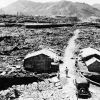 +23 +1
+23 +1'I still cannot get over it': 75 years after Japan atomic bombs, a nuclear weapons ban treaty is finally realised
Sixty-nine nations, however, have not signed it, including all of the nuclear powers such as the US, UK, Russia, China, France, India, Pakistan and North Korea, as well as NATO member states (apart from the Netherlands who voted against), Japan and Australia.
-
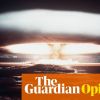 +14 +1
+14 +1Now that nuclear weapons are illegal, the Pacific demands truth on decades of testing
With a 50th nation ratifying it, the treaty outlawing nuclear weapons for all countries will come into force in 90 days
-
 +10 +1
+10 +1Fukushima reactor water could damage human DNA if released, says Greenpeace
Contaminated water that will reportedly be released into the sea from the wrecked Fukushima Daiichi nuclear power plant contains a radioactive substance that has the potential to damage human DNA, a Greenpeace investigation has said.
-
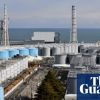 +4 +1
+4 +1Japan to release 1m tonnes of contaminated Fukushima water into the sea – reports
Japan’s government has reportedly decided to release more than 1m tonnes of contaminated water from the Fukushima Daiichi nuclear power plant into the sea, setting it on a collision course with local fishermen who say the move will destroy their industry. Media reports said work to release the water, which is being stored in more than 1,000 tanks, would begin in 2022 at the earliest and would take decades to complete.
-
 +18 +1
+18 +1The Truth Game
John Pilger's penetrating documentary which looks at world-wide propaganda surrounding the nuclear arms race. When the two American atomic bombs were dropped on Hiroshima and Nagasaki in 1945, they were code-named Fat Man and Little Boy, and President Truman announced after the event: "The experiment has been an overwhelming success."
-
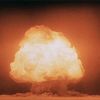 +4 +1
+4 +1How understanding nature made the atomic bomb inevitable
Atomic bombs hastened the end of World War II. But they launched another kind of war, a cold one, that threatened the entire planet with nuclear annihilation. So it’s understandable that on the 75th anniversary of the atomic bomb explosion that devastated Hiroshima (August 6, 1945), reflections tend to emphasize the geopolitical dramas during the decades that followed.
-
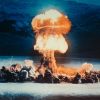 +14 +1
+14 +1The New Nuclear Dawn: Threat of Atomic Weapons Grows as U.S., Russia and China Renew Arms Race
Seventy-five years after the dropping of the first atomic bomb in Hiroshima, one nuclear non-proliferation after the other is lapsing. A new arms race is already taking shape between Russia, the United States and China.
-
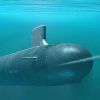 +14 +1
+14 +1US Navy Plans To Pimp Up Its Nuclear Subs With Mysterious Laser Weapons
Laser weapons can hit at the speed of light, and they are quickly deploying to each potential fighting domain, whether on property, at the atmosphere , and in sea. But what about beneath the sea? Open-source funding documents, the oldest of which date back to 2011, reveal the Navy’s plans to arm Virginia-class nuclear subs with high performance laser weapons.
-
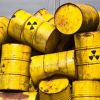 +17 +1
+17 +1Near-Infinite-Lasting Power Sources Could Derive from Nuclear Waste
When you hear about radioactive material you tend to think that it would be best not to go near it. A team of physicists and chemists from the University of Bristol in England don't quite think that way, though. The team, in fact, hope to recycle radioactive material from disused nuclear power plants in the South West of England to create diamond battery power — ultra-long-lasting power sources.
-
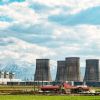 +14 +1
+14 +1How Close Is Iran to a Nuclear Weapon? Here's What We Know
Iran is no longer abiding by many of the restrictions in the landmark 2015 nuclear deal, but that doesn’t mean it’s about to build a bomb, either.
-
 +7 +1
+7 +1Is Nuclear Power Worth the Risk?
On a blustery Sunday in Okuma last spring, a crowd was seated under red-and-white tents awaiting the arrival of Prime Minister Shinzo Abe. They had gathered to celebrate the opening of a new town hall, and the reopening, just a few days earlier, of the town of Okuma itself.
-
 +17 +1
+17 +1Radioactive chlorine from nuclear bomb tests still present in Antarctica
Antarctica's ice sheets are still releasing radioactive chlorine from marine nuclear weapons tests in the 1950s, a new study finds. This suggests regions in Antarctica store and vent the radioactive element differently than previously thought. The results also improve scientists' ability to use chlorine to learn more about Earth's atmosphere.
-
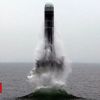 +4 +1
+4 +1North Korea tests new submarine missile from sea
North Korea has confirmed it test-fired a new type of a ballistic missile, a significant escalation from the short-range tests it has conducted since May. The missile - which was able to carry a nuclear weapon - was the North's 11th test this year. But this one, fired from a platform at sea, was capable of being launched from a submarine.
-
 +9 +1
+9 +1Russia says Radiation Levels Rose by 4-16 Times in City after Accident: TASS
Radiation levels in the Russian city of Severodvinsk rose by up to 16 times on Aug. 8 after an accident that authorities said involved a rocket test on a sea platform.
-
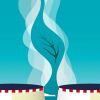 +31 +1
+31 +1Safer Nuclear Reactors Are on the Way
Controlling carbon in the atmosphere will require a mix of energy technologies—potentially including nuclear reactors, which emit no carbon but are seen as risky because of a few major accidents. That risk could be greatly reduced.
-
 +21 +1
+21 +1Coal and gas are far more harmful than nuclear power – Climate Change: Vital Signs of the Planet
Human-caused climate change and air pollution remain major global-scale problems and are both due mostly to fossil fuel burning. Mitigation efforts for both of these problems should be undertaken concurrently in order to maximize effectiveness. Such efforts can be accomplished largely with currently available low-carbon and carbon-free alternative energy sources like nuclear power and renewables, as well as energy efficiency improvements.
-
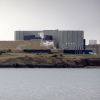 +21 +1
+21 +1Nuclear power decline ‘would lead to increased emissions’: IEA
The International Energy Agency (IEA) has warned that the decline of nuclear power in advanced economic countries would lead to an additional four billion tonnes of CO2 emissions by 2040. The warning comes in the group’s report ‘Nuclear Power in a Clean Energy System’, published 28 May. There is currently 422GW of nuclear power installed in the world, making it the second-largest source of low carbon energy in the world.
-
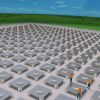 +34 +1
+34 +1Holtec clears hurdle for proposed nuclear-waste storage facility
Holtec International has won a round in its fight to open a nuclear-waste storage facility, but the company’s opponents say they’re not giving up. A three-judge panel this week rejected nearly 50 objections to the Camden firm’s proposal for a "consolidated interim storage facility” that would initially hold up to 8,680 metric tons of uranium in a remote area of southeastern New Mexico.
-
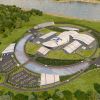 +22 +1
+22 +1This Company Says The Future Of Nuclear Energy Is Smaller, Cheaper And Safer
Nuclear power plants are so big, complicated and expensive to build that more are shutting down than opening up. An Oregon company, NuScale Power, wants to change that trend by building nuclear plants that are the opposite of existing ones: smaller, simpler and cheaper.
-
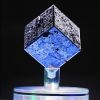 +31 +1
+31 +1How scientists traced a uranium cube to Nazi Germany’s nuclear reactor program
The mysterious cube arrived in the summer of 2013. Physicist Timothy Koeth had agreed to go to a parking lot for an unspecified delivery. Inside a blue cloth sack, swathed in paper towels, he found a small chunk of uranium. It was about 5 centimeters across, with “a white piece of paper wrapped around it, like a ransom note on a stone,” Koeth says. On the paper was a message: “Taken from the reactor that Hitler tried to build. Gift of Ninninger.”
Submit a link
Start a discussion




















